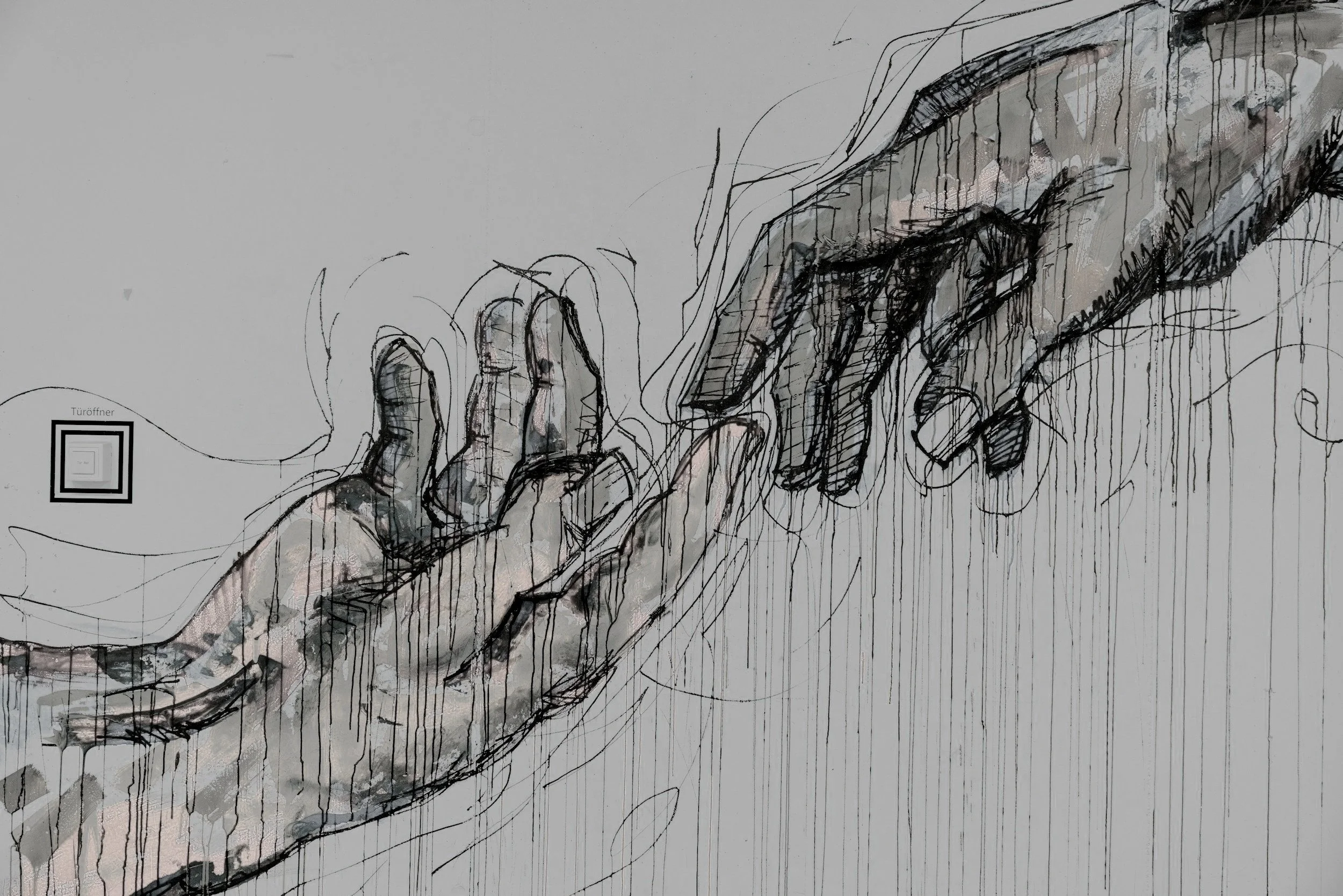To everyone around you, your life looks good. Meaningful careers. A family you care deeply about. Friends, interests, trips when you can manage the time.
Behind closed doors, something isn’t working anymore.
Small disagreements escalate quickly or end in shutdown. Conversations feel tense, circular, or brittle. Intimacy feels strained or distant. What once felt steady now feels unpredictable.
You still love each other — and you’re increasingly aware that if nothing changes, the distance may grow rather than resolve itself.
COUPLES THERAPY & MARRIAGE COUNSELING IN VIRGINIA AND WASHINGTON, DC
From the outside, you look like the almost-perfect couple.
Arguments that start small and escalate quickly
Feeling emotionally disconnected or distant, even when you’re together
Repeating the same conflicts without resolution
Difficulty working together around money, parenting, illness, or major life stressors
Little or no physical or emotional intimacy
Ongoing strain related to extended family
A rupture caused by betrayal, infidelity, or loss of trust (Click here for more information)
Disconnection or strain following the transition to parenthood
You may recognize yourselves in this:
You never expected to be the couple who needed help.
Most of us were never taught how to sustain a long-term relationship — not in school, and often not in our families. We learn by doing, until the strain becomes hard to ignore.
Many couples wait until the pain feels overwhelming before reaching out. By then, patterns of disconnection or conflict may already feel entrenched. Waiting longer often allows more damage to accumulate, making repair harder than it needs to be.
Change is still possible. Even relationships that have been strained for a long time can move in a different direction — when there is structure, steadiness, and skilled guidance.
You both deserve a relationship that feels safe and secure.
At a certain point, two realizations tend to arrive together: you want that kind of relationship, and you may no longer be able to create it on your own. That is often when couples therapy becomes necessary.
You may remember an earlier time when being together felt easier. Conversation flowed. Connection felt natural. You felt understood without having to work so hard for it.
Wanting that closeness again makes sense.
Couples therapy, however, isn’t about returning to an earlier stage of your relationship. It’s about building something more durable — a more mature connection grounded in deeper understanding, clearer communication, and real emotional safety.
Seen this way, couples therapy is not a rescue or a last resort. It is an intentional investment in the future of your relationship.
Before couples therapy
Conversations feel transactional and guarded, focused on logistics rather than connection.
Small disagreements escalate quickly or end in silence, withdrawal, or resentment.
The same conflicts repeat without resolution.
One or both of you feels unseen, misunderstood, or emotionally alone in the relationship.
Intimacy feels strained, distant, or has faded altogether.
You walk on eggshells, avoid certain topics, or brace for negative reactions.
When things are “fine,” they feel flat. When they’re bad, they feel overwhelming.
You love each other, but the distance between you feels heavy and difficult to bridge.
After couples therapy
Conversations feel calmer and clearer, even when the topics are difficult.
You listen more accurately and feel more understood by each other.
Conflict becomes manageable rather than destabilizing.
Resentment is addressed and worked through instead of accumulating quietly in the background.
Intimacy begin to return in ways that feel safe and mutual.
You stop walking on eggshells and engage more honestly with each other.
You function more as partners again, not just co-managers of daily life.
There is a renewed sense of trust, connection, and being on the same team.

In couples therapy, the three of us sit together and begin with what is actually happening in your relationship. At first, it’s common to feel cautious. I am new to you, and it’s natural to wonder whether I can understand the complexity of your relationship and work fairly with both of you.
What brings you here is not a lack of effort or care. It’s that something isn’t working — and the strain of carrying that on your own has become too much.
As we talk, the work begins. Together, we look at what has changed in your relationship, where you feel stuck, and what each of you needs in order to feel seen, understood, and connected again.
With my guidance, patterns that once felt confusing or automatic become clearer.
We pay attention not only to what is said, but to tone, timing, reactions, and emotional responses — the moments where connection is either strengthened or disrupted.
I work from outside your relationship, staying grounded and attentive while coaching you in real time. I help you slow things down, approach each other differently, and respond in ways that reduce escalation and support connection.
You leave sessions with insight, but more importantly, with concrete ways of relating differently.
Between sessions, you practice — noticing your patterns, responding with greater intention, and discovering what helps create more stability, trust, and closeness.
Over time, as you stay engaged in the work, your relationship becomes more secure and supportive. You gain the capacity to be more fully yourselves together, with greater compassion for each other and for the relationship you are actively shaping.
What happens in couples therapy?
Many couples have tried therapy before and come away with insight, but without lasting change. Understanding what’s wrong doesn’t always help when emotions run high and familiar patterns take over.
That’s why my work with couples is grounded in a structured, evidence-based approach that focuses on what happens between you in real time — how you respond to each other moment by moment, not just what you talk about.
THE PSYCHBIOLOGICAL APPROACH TO COUPLE THERAPY
PACT: The path to a stronger, more connected love
When you work with me, couples therapy is not about rehashing the same arguments or relying on communication “tips” that collapse under pressure. PACT is a research-informed approach designed to change how couples relate to each other in the moments that matter most.
PACT focuses on emotional safety, secure attachment, and real-time interaction between partners. Rather than talking about problems in the abstract, we work directly with what happens between you — your reactions, assumptions, and the patterns that shape your connection.
No More Talking in Circles
Many couples find themselves stuck in familiar arguments that escalate quickly or end in shutdown. PACT helps you recognize these patterns as they emerge and respond differently before conflict takes over and distance sets in.
A Relationship That Feels Secure
Beneath frustration and withdrawal is often a shared need to feel safe, chosen, and supported. PACT is designed to help couples build that sense of security so the relationship itself becomes a source of stability rather than stress.
Understanding Each Other More Fully
Connection isn’t about mind-reading. It’s about understanding how your partner experiences closeness, threat, and repair — and responding with greater accuracy and care. PACT helps couples develop this kind of attunement so connection becomes more reliable over time.
A Relationship Built to Last
Strong relationships are not defined by the absence of conflict, but by the ability to repair, reconnect, and move forward together.
PACT supports couples in building a relationship that can withstand stress, change, and the realities of long-term life together.
My work is grounded primarily in PACT and informed by training in Emotionally Focused Therapy (EFT) and the Gottman Method. This allows me to draw from well-established perspectives while remaining anchored in a clear, structured approach to couples therapy.
How PACT sessions are different
If you’ve tried couples therapy before — or have an idea of it from TV or movies — PACT sessions may feel noticeably different.
Here’s why:
We work in the moment.
Rather than focusing only on past conflicts, we pay close attention to what is happening between you in real time (shifts in tone, expression, posture, and emotional response) and what those moments communicate to each other.We work with interaction, not just insight.
I create opportunities in session to address the same situations that trouble your relationship and coach you as you respond to each other differently, as it’s happening.Sessions are longer and more focused.
PACT sessions are typically longer than the standard therapy hour to allow for depth, repair, and integration. Sessions are often 90 minutes and may extend to several hours when appropriate.Progress is often more efficient.
Because the work is experiential and targeted, many couples find they need fewer sessions than with traditional talk-based couples therapy.Video feedback may be used when helpful.
With your permission, brief video recordings may be used to help you see patterns in communication and emotional response that are difficult to notice in the moment.
PACT is best suited for couples who are willing to stay engaged, tolerate some discomfort, and work actively on their relationship.
FAQs about couples therapy
1. How do we know if couples therapy is right for us?
Couples therapy can be helpful when something in the relationship isn’t working and your efforts to fix it on your own haven’t led to meaningful change. Many couples reach out when communication has broken down, connection feels strained, or conflict has become difficult to manage. You don’t need to be on the brink of separation — but both partners do need to be willing to engage in the process.
2. We’ve been living like this for a long time. Is there still hope?
Many couples wait years before seeking help. By that point, patterns of conflict or disconnection can feel deeply entrenched. Couples therapy has evolved significantly in recent years, and structured, research-informed approaches like PACT are designed specifically to address these patterns. Even relationships that have felt stuck for a long time can move in a different direction.
3. What if we’ve already tried couples therapy and it didn’t help?
Some couples leave previous therapy with insight, but without lasting change — or feeling worse than before. PACT works differently by focusing on real-time interaction and emotional responses, not just discussion. This approach can be especially helpful for couples who felt stalled or frustrated in more traditional talk-based therapy.
4. What if one of us is hesitant or resistant to starting couples therapy?
It’s common for one partner to feel unsure, particularly if there has been a difficult experience with therapy in the past or concern about a therapist taking sides. My role is to work with the relationship as a whole and to keep the process balanced and fair. Many couples choose to begin with one or two sessions to see how the work feels before deciding how to proceed.
5. How long does couples therapy take?
Every relationship is different. Some couples notice shifts within the first few sessions, while others work together over a longer period of time. Progress depends on factors such as how long issues have been present, the level of distress, and how actively both partners engage in the work. Couples decide together when therapy has supported the changes they were seeking.
6. What if things feel so damaged that repair seems impossible?
Many couples arrive feeling this way. Over time, unaddressed hurt can lead to distance, resentment, and resignation. In therapy, couples learn to identify and change the patterns that keep them stuck. While not every relationship can or should continue, many couples find that meaningful repair becomes possible once these patterns are understood and addressed.
7. How do we know if you’re the right therapist for us?
This website can give you a sense of how I work, but the best way to know whether it feels right is to meet. I offer a free video consultation so both of you can ask questions, experience the tone of the work, and see whether working together feels like a good fit.
8. What if we’re seriously considering separation or divorce?
I work with couples who are willing to explore whether their relationship can become safe and secure again. If your primary goal is help deciding whether to separate or divorce, I can refer you to a therapist who specializes in that kind of discernment work.
Couples typically choose between two ways of working together, based on time, urgency, and how much support is needed at the outset.
Ongoing Couples Therapy
This option is well suited for couples who want a steady pace and consistent support over time.
Meet weekly or biweekly
Sessions typically last 90 minutes or 2 hours
Time between sessions allows for integration and practice
Frequency may decrease as the relationship stabilizes
This format works well when the relationship feels strained but not in crisis, and you want a reliable rhythm for making change.
Intensives and Retreats
This option is designed for couples who want to make meaningful progress more quickly.
Longer sessions (typically 3–6 hours) or multiple sessions scheduled close together
Allows deeper work without the stop-start of weekly meetings
Often helpful when time is limited, travel is involved, or issues feel urgent
Many couples use an intensive as a jumpstart and then continue with ongoing therapy for support and integration.
Learn more about Intensives and Retreats
Choosing the Right Option
During your consultation, we’ll talk together about what’s happening in your relationship, your schedules, and what level of support makes the most sense right now.
Couples therapy options

YOUR NEXT STEP
If you’re both feeling the strain in your relationship and are open to exploring whether couples therapy could help, the next step is a consultation.
The consultation allows the two of you to:
Meet with me together
Ask questions about how the work unfolds
Get a sense of whether this approach feels like the right fit
You don’t need to have everything figured out before reaching out. You simply need enough willingness to begin.




